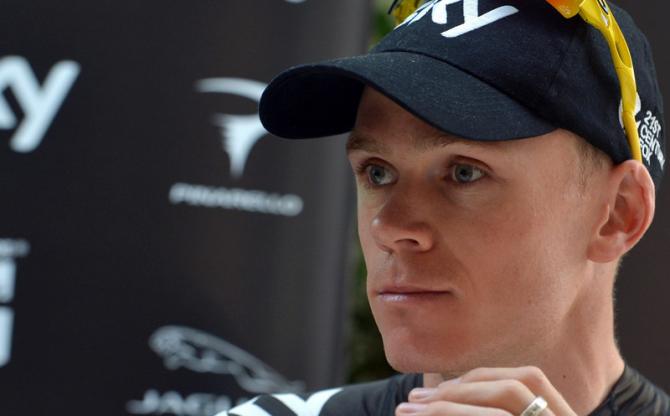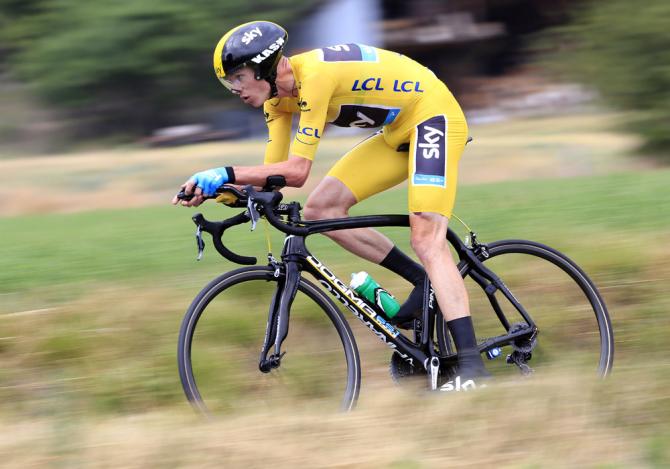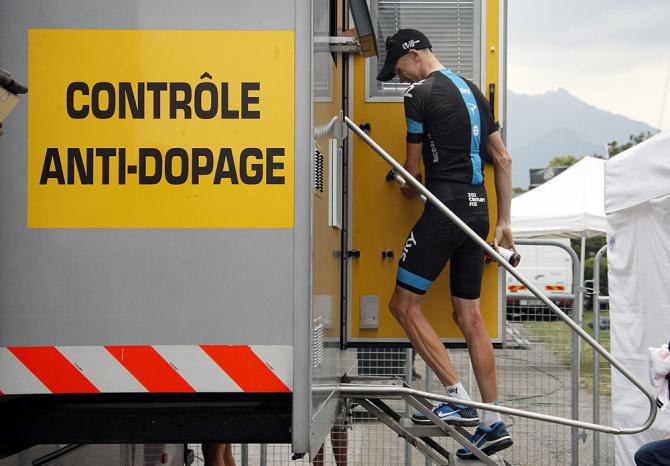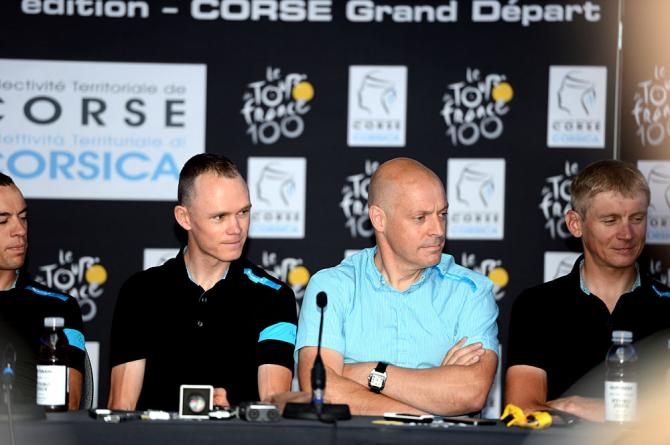Team Sky releases Froome's power data
French power expert Grappe says his performances are consistent




Team Sky has given French newspaper L'Equipe and respected French physiologist Frederic Grappe access to two years of Chris Froome's power data, with Grappe saying that the Tour de France leader's power data indicates that his performances are consistent.
LeMond: There can be spectacular performances without doping
Tour de France video: Froome on doping, winning on Mont Ventoux
Froome avoids disaster on descent to Gap
Froome wins Tour de France time trial in Chorges
Riders association backs Froome against speculation of doping
During a press conference on Monday, Team Sky manager Dave Brailsford called on the media to help find a way that could perhaps prove that Froome is clean and so end the doubts and speculation about his performance. He suggested that WADA could appoint an expert to study blood values, weight and power data to somehow validate performance. It seems that WADA has said it cannot help and so Team Sky opted to show the power data to Equipe and Grappe.
It is not known if Grappe or other experts have also studied Froome's blood values and compared data from 2011-2013 to data from earlier in his career, before he emerged as a Grand Tour contender.
Grappe has long made his own calculations on rider performance with a complex model. Other physiologist such as Antoine Vayer are more aggressive in their methodology and have made more direct accusations in the past. Grappe is more cautious with his analysis.
Speaking to Equipe about Froome's data, Grappe suggested that Froome's power indicate that his performances were consistent during 2011-2013 and similar to other riders he has studied.
Equipe claim that the comparison between his data and the data provided by Team Sky indicates a margin of error of just 2.5%.
Grappe gave his opinion in four key points:
The latest race content, interviews, features, reviews and expert buying guides, direct to your inbox!
First observation: His power drops off normally
"The relationship between power and time is similar to what is known and is observed in all the riders that have been established in the record power profile (RPP)," Grappe told Equipe.
"It shows, for example, a significant and normal power reduction of 60 watts (0.88 w/kg) between twenty and sixty minutes efforts. On average an athlete loses fifty watts in this time interval. The RPP that Froome has over two years does not seem to show any abnormality in its fundamental structure. In other words, the power data of the last two years is consistent with the profile that it represents. The performances he made on Ax 3 Domaines and Ventoux were to be expected in view of his PPR. During the last two years, his profile has not changed. It appears that the potential that he has today is similar to the one he had in 2011."
Second observation: an exceptional aerobic potential
"The extremely high maximal aerobic power (efforts of five minutes) confirms that he has an extraordinary high aerobic potential, which means he has a V02 max (this has never been measured in the laboratory by his team) close to the limits of known physiological science."
"The exceptional power that he is able to develop during maximum efforts of five minutes gives him a certain reserve (of strength) compared to other athletes. This gives an indication of why he is capable of performing on the final climbs. It is estimated that, compared to his main rivals, he has a margin of 20 watts extra power. It is this difference that can be seen for example between him and his main rivals on the climbs and Ax 3 Domaines du Ventoux."
Third observation: a very stable weight
"His average weight over the two years is 68 kg (in the morning) with less than 900g variations. This shows that the power he develops over two years is relatively stable when expressed in watts per kilogram (W/kg), a very important indication of the performances he has shown."
Fourth observation: excellent recovery
"It is evident that to be able to operate with a power profile near 100% of his maximum, Chris Froome must have excellent ability to recovery between stages. Because if the level of fatigue accumulates too much, it is no longer possible to be close to his records."
Grappe also studied Froome's performance in Wednesday's time trial, saying: "the average power output was still a very well integrated into its power profile once, and therefore completely expected."


Stephen is one of the most experienced member of the Cyclingnews team, having reported on professional cycling since 1994. He has been Head of News at Cyclingnews since 2022, before which he held the position of European editor since 2012 and previously worked for Reuters, Shift Active Media, and CyclingWeekly, among other publications.